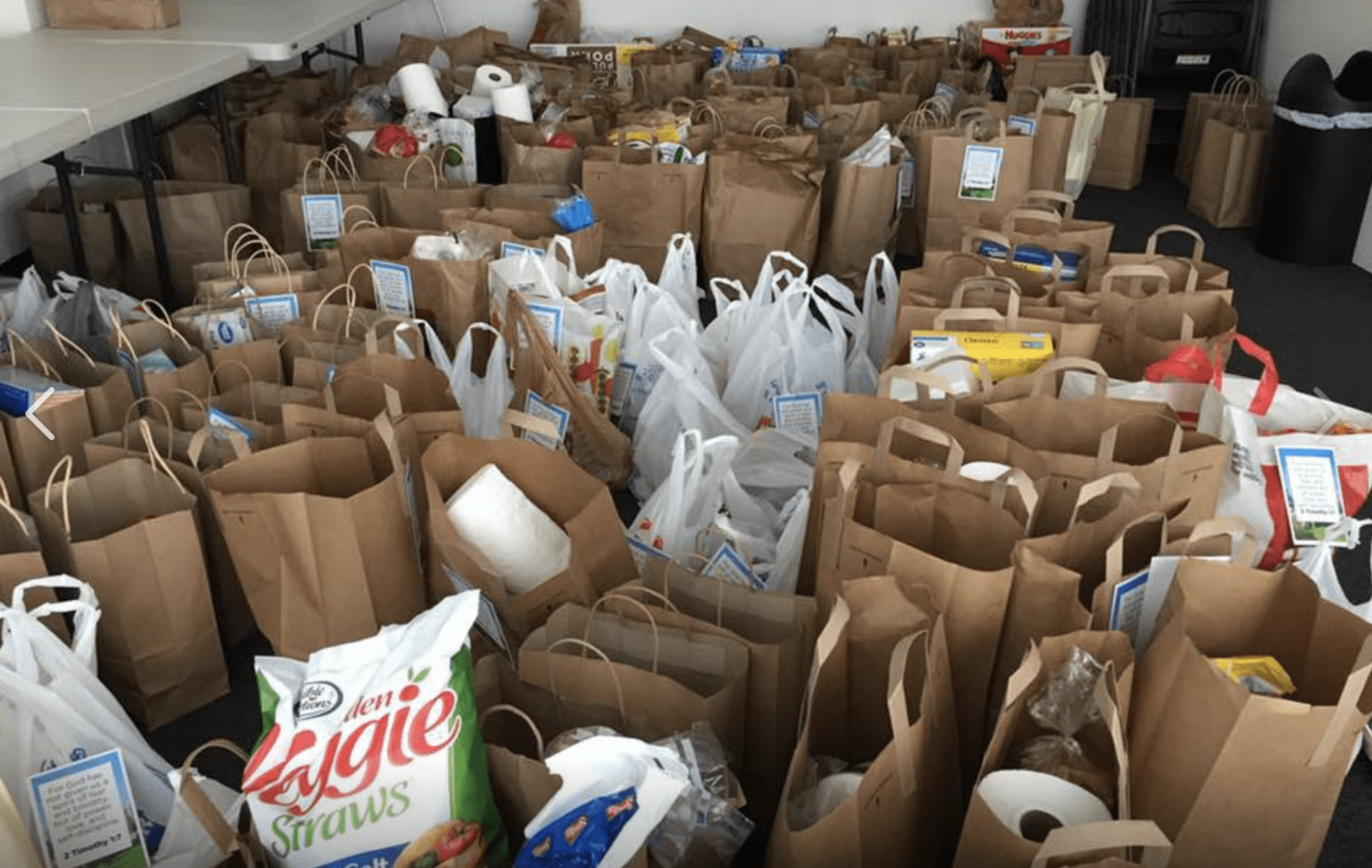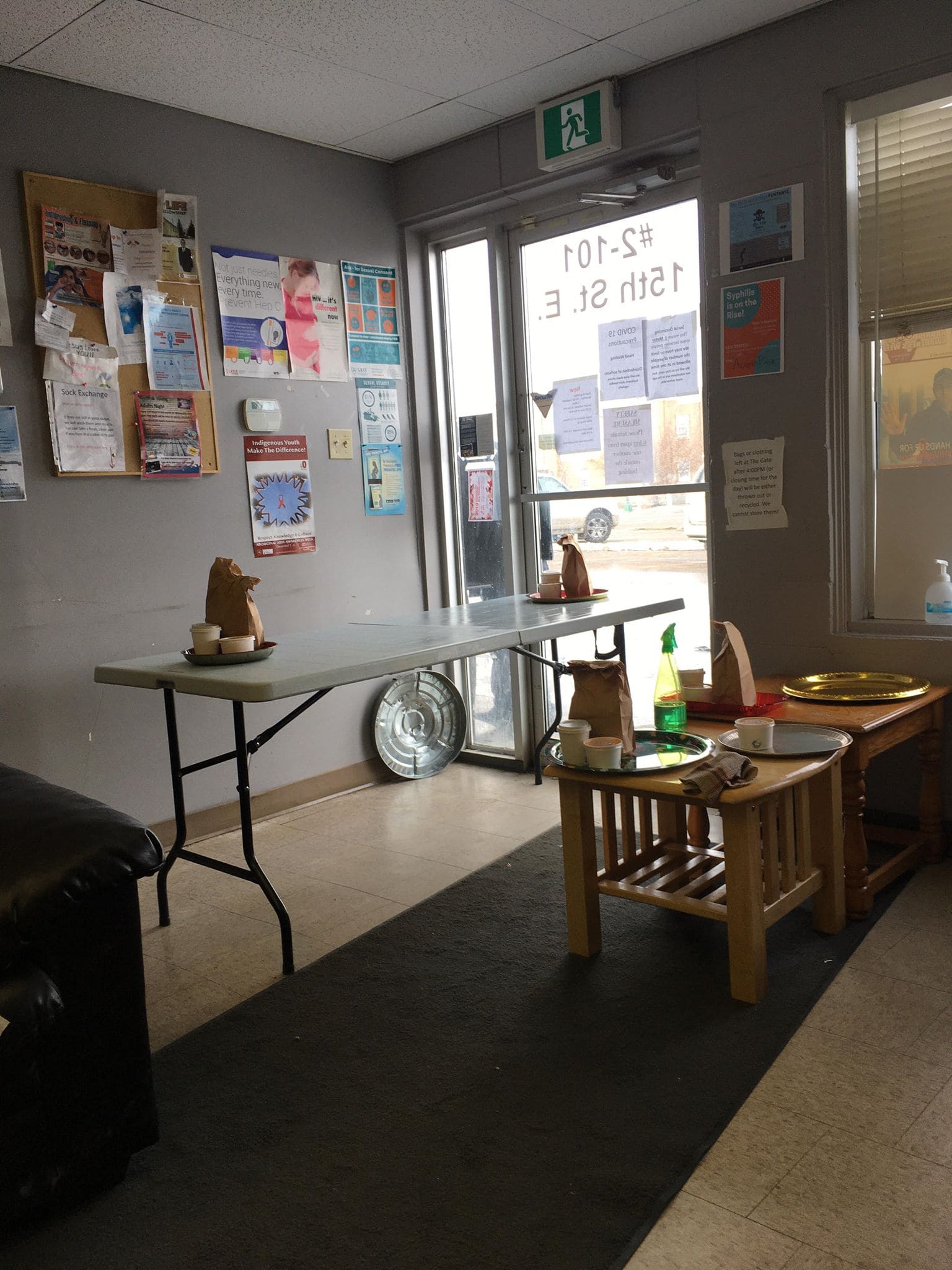
(March 26, 2020) – Covenant churches and their partners who provide food to the hungry have adapted their practices in response to the coronavirus pandemic.
The U.S. Labor Department announced Thursday that a record 3.28 million new people applied for unemployment insurance this week. Higher unemployment numbers mean more people are seeking food assistance.
Valley Covenant Church, Stillman Valley, Illinois
The Bread of Life food pantry operated by Valley Covenant Church usually distributes food on the second Tuesday of each month. “Ordinarily, our guests come into the building and sit at tables enjoying a meal and conversations while they wait to shop for their food,” said pastor Rick Lindholtz. On their next distribution date, they plan to ask clients to remain in their cars, where they can receive bagged groceries, Lindholtz said.
The ministry will make a special delivery of boxed Easter meals to the 125 people who have signed up for the distribution. “A lot of effort is going into the managing of the truck delivery from the Northern Illinois Food Bank, the setup and packing of the boxes, and the distribution itself in order to keep the process as safe as possible for volunteers,” Lindholtz said. That has included making sure workers stay at safe distances from each other and making sure to sanitize all work areas.
Cityview Covenant Church, Pittsburgh, Pennsylvania
Cityview Covenant Church has made multiple adjustments as safety concerns and city rules change, said pastor Leeann Shaw Younger. For the past two years, the church has served a weekly hot meal to approximately 35 people, including neighbors who are food insecure, homeless, and other community-minded residents seeking to build relationships.
As concerns about the coronavirus grew, the church started serving the meals curbside. Once a “stay at home” order was issued, however, they had to cancel the ministry.
Yet Cityview has remained committed to serving their neighbors. “Since most of the people we serve are food insecure, we’ve begun to check in with folks about their grocery supplies and have asked church members who are able to purchase groceries for specific families,” Younger said.
The church is directing homeless people to the local mission about four blocks away, which serves dinner every evening. “Everyone will have food,” Younger said. “Community and connection is what we’re really losing.”
Freedom Covenant Church, Kansas City, Missouri
Freedom Fire Urban Outreach in Kansas City, Missouri, operates multiple ministries for youth, low-income families, and homeless people but had not offered food distribution until recently. Now the nonprofit arm of Freedom Covenant Church has been working with multiple partners to deliver bags of food to local residents in need.
The ministry began delivering food daily on March 16. While most days it serves around 60 families, they have served as many as 100. The number is dependent upon how much food is donated, said pastor Bruce McGregor, who also is founder and city director for the nonprofit.
McGregor said the organization developed the food distribution plan when they realized that schools would likely close after spring break and that they would probably have to pause their other ministries, which include tutoring, sports, Bible studies, and worship.
“We had to retool,” McGregor said.
The need is great. On a Sunday night several weeks ago, McGregor took several teenagers out for a hamburger. They said it was the first food they had eaten the whole weekend.
McGregor said volunteers are careful to dress appropriately and maintain social distancing as much as possible.

Gateway Covenant Church, Prince Albert, Saskatchewan
Gateway Covenant Church operates a ministry in an offsite space provided by their regional health services that includes a sexual health/HIV/Hepatitis C clinic. The building also includes a “harm reduction area,” which is a site for needle exchanges, and the health region’s addiction and mental health services.
“We really are in the center of things,” said pastor Linea Lanoie, who directs the ministry. “A lot of our people who live on the street are substance abusers, so they drop in almost daily.”
Rather than providing soup and sandwiches inside, the ministry now distributes food at the door. A long table between the servers and the door helps participants follow social distancing protocols. “Food is placed on a tray at the end of the table by the door. The person opens the door and removes the food,” Lanoie said. “We take and sanitize the tray and set up for the next person.”
The ministry partners with two other organizations that deliver food to shut-ins.













